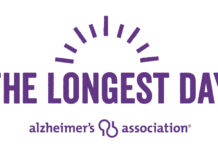Creative engagement
By Marianne Delorey, Ph.D., Executive Director, Colony Retirement Homes
“There are two ways of spreading light – to be the candle or the mirror that...
After the diagnosis of Alzheimer’s disease: So what now!!
By Micha Shalev, Co-owner of The Oasis at Dodge Park, Dodge Park Rest Home and The Adult Day Club at Dodge Park
“Are you kidding...
Why worry?
By Marianne Delorey, Ph.D., Executive Director, Colony Retirement Homes
“When I look back on all these worries, I remember the story of the old man...
I have been an imposter
By Marianne Delorey, Ph.D., Executive Director, Colony Retirement Homes
For years now, I’ve been writing about aging, but I was in my 40s. I know...
Safety monitoring of a loved one diagnosed with dementia
By Micha Shalev, Co-owner of The Oasis at Dodge Park
We get news every day of remarkable developments in the tech world that claim to...
June is Alzheimer’s & Brain Awareness Month
Submitted by the Alzheimer’s Association, Massachusetts/New Hampshire Chapter
June is Alzheimer’s & Brain Awareness Month and the Alzheimer’s Association® needs you to help raise awareness...
‘Mom, do you know my name?’
By Janice Elizabeth Berte
It all started out so innocently when I visited my mother years ago, and I would notice that asking her basic...
Moving into a long term care facility
By Micha Shalev MHA CDP CDCM CADDCT
Part one of this series appeared in the April issue of the Fifty Plus Advocate. Part three will...
The journey to…and back…from grief
By Marianne Delorey
“I sat with my anger long enough until she told me her real name was grief.” – Author unknown.
My mother went to...
Moving into a long term care facility
Part one of a three part series
By Micha Shalev
Most of us dread the thought of permanently moving a loved one into a skilled...










